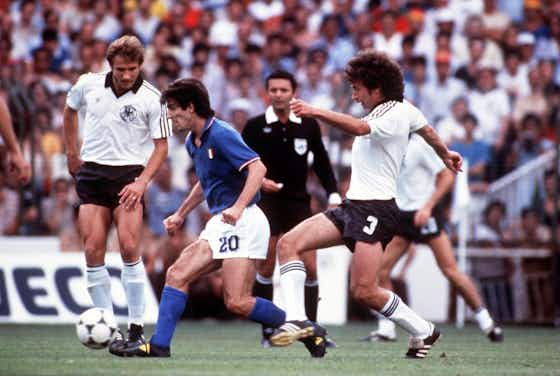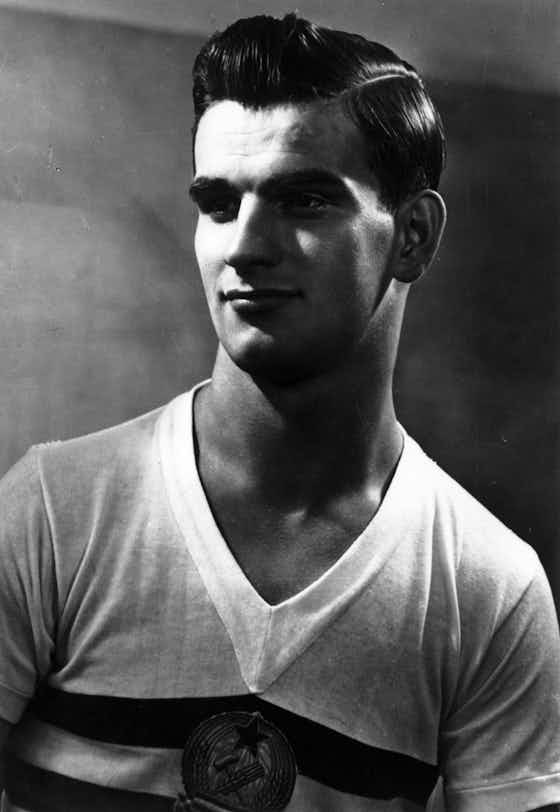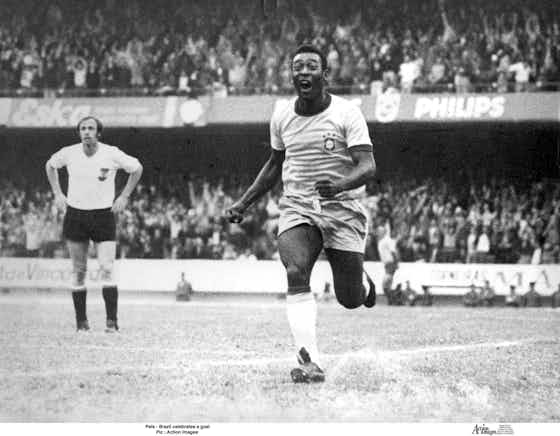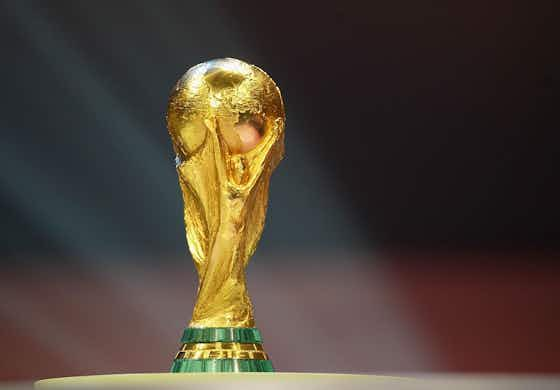GiveMeSport
·31 October 2022
Ronaldo, Pele, Klose, Muller: Who is the World Cup's greatest goalscorer?

In partnership with
Yahoo sportsGiveMeSport
·31 October 2022

World Cup history is littered with some of football’s most iconic goalscorers, but just who have been the very best of the bunch at sport’s biggest spectacle?
It’s a very hard question to answer, one might say impossible. But despite that, we’ve decided to give it a go.
Check out our 10-man ranking and remember, the list isn’t solely based on the numbers of goals scored at the World Cup…
With an average of a goal a game across the two World Cups he played in, Helmut Rahn scored twice in the 1954 final against Hungarian opponents who hadn’t lost a match for four years, inclusive of snatching the winning goal with his weaker foot.
A game that was christened in his homeland as The Miracle of Bern, Rahn also scored the crucial second goal against Yugoslavia, in the quarter-finals.
He went on to score six times in the 1958 finals, scoring in every game apart from their semi-final defeat to the hosts, Sweden.
Hitting the back of the net across four World Cups between 2002 and 2014, with a haul of 16 goals nobody has scored more times in the finals of the tournament than Miroslav Klose.
The only thing holding him back from being higher up the list is that he did it in 24 appearances, giving him a goals-per-game ratio that is higher than only three of the other 12 players to have scored double figures in World Cups.
Winner of the Golden Boot in the 2006 finals, in 2014 he became only the third player to score in four different World Cups.

With nine goals in 16 games across three World Cups, while there are players to have scored more goals in the tournament’s history than Jairzinho, the Brazilian international claimed his as a winger, even succeeding in scoring in all six of his team’s games at the iconic 1970 finals.
Two against Czechoslovakia, and one each against England, Romania, Peru, Uruguay, and Italy, nobody has matched the achievement since.
He went on to score twice in the 1974 finals, as one of the few bright points of an otherwise poor tournament for Brazil.
Part of a wonderfully fluid front-three for Italy at the 1978 World Cup, alongside Roberto Bettega, and Franco Causio, Paolo Rossi scored three times in Argentina, in a team that was arguably better than the one that would win the tournament four years later, in Spain.
By 1982, he was coming off the back of a two-year ban for his part in the Totonero Scandal; clearly rusty in the first-round group stages, by the time he faced Brazil there were calls for him to be axed.
He scored a hat-trick, going on to find the net again twice in the semi-final and once in the final, to win the Golden Boot.

Eusébio only played in one World Cup, in England in 1966, but he packed a lot into one tournament.
Taking the Golden Boot with nine goals, this was a total that was over twice as many as any other player apart from Helmut Haller, who still scored three fewer than the man dubbed The European Pelé.
He scored in all of Portugal’s games apart from their opener against Hungary, finding the net four times in the quarter-final comeback against North Korea. Bulgaria, Brazil, England, and the Soviet Union all failed to stop him.
Like Eusébio, Sándor Kocsis only played in one World Cup.With 11 goals from the five games he played in during the 1954 finals, he should have emerged with a winners’ medal to go alongside the Golden Boot.
In terms of goals-per-game ratio, nobody has higher numbers than Kocsis when it comes to players that have scored five or more World Cup goals.
A hat-trick against South Korea, he put four past West Germany in the group stages, adding two more in both the quarter and semi-finals against Brazil, and Uruguay respectively. He only failed to score in the fateful final itself.

Another to have been restricted to only one World Cup, Just Fontaine holds the record for the most goals scored in any one given tournament by an individual player, with the 13 he scored at the 1958 finals.
France were beaten in the semi-finals by a Pelé inspired Brazil, but Fontaine was on the scoresheet.
Just as he was in the other five games he played, also scoring a hat-trick against Paraguay, a brace against Yugoslavia, the winner against Scotland, two more in the quarter-final against Northern Ireland, plus four in the third place play-off against West Germany.
From a blossoming 17-year-old in the 1958 finals, to the master of the world in 1970, via injury disrupted appearances in 1962, and 1966, Pelé found the net in four successive finals tournaments, scoring 12 times, in 14 games.
From power, pace, and a brute force of will, to the subtlety of a genius, Pelé’s range of goals was simply jaw-dropping. He scored six times in Sweden, once each in Chile, and England, then four times in Mexico.
One of only four players to have scored in more than one World Cup final, the 12 years that separate his first and second is a wider gap than any other player.
He ignored the national clamour for his inclusion in the Brazil squad for the 1974 finals.

Only one man has scored more World Cup goals than Ronaldo.
Having sat on the side-lines in 1994 with a watching brief, he exploded onto the scene in France, in 1998, with four goals, only to lose the final amid controversy and rancour after he had initially been excluded from Brazil’s starting line-up after suffering a seizure earlier in the day.
Despite a succession of devastating injuries, four years later he scored eight times in South Korea, and Japan, helping the collective to the redemption of World Cup glory, and himself to the Golden Boot.
Ronaldo scored both of his team’s goals in the final, against Germany, and four years later he would find the net three more times as Brazil’s World Cup defence was surprisingly ended by France, in the quarter-finals.
An unstoppable goalscoring machine, Gerd Müller took to the 1970 World Cup with an almost obscene abandon.
Scorer of the winning goal in West Germany’s opening game against a stubborn Morocco, he followed that up with hat-tricks against both Bulgaria, and Peru.
In the quarter-final, against England, Müller scored the winner as his team fought from 2-0 down, to win 3-2 in extra time, while he scored twice in their iconic loss to Italy in the semi-finals, a 4-3 defeat that was dubbed The Game of the Century.
Ending the 1970 tournament with ten goals, four years later, on home soil, and in a more frugal team, he was restricted to four goals, although the last of those was the winner in the final, against the magnificent Netherlands.

1 of 25

Argentina Uruguay Italy Czechoslovakia






























































